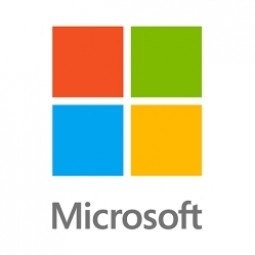
Technology Category
- Infrastructure as a Service (IaaS) - Cloud Databases
- Infrastructure as a Service (IaaS) - Private Cloud
Applicable Industries
- Healthcare & Hospitals
The Customer
GE Healthcare
About The Customer
A division of General Electric, GE Healthcare provides medical imaging and information technologies, medical diagnostics, patient monitoring systems, performance improvement, drug discovery, and biopharmaceutical manufacturing technologies.
The Challenge
Two of the company’s businesses—GE Healthcare IT and GE Healthcare Global Services—sought to provide customers with more flexible, yet secure cloud solutions. GE Healthcare IT software and services for Integrated Care create actionable insight across the healthcare system and the care pathway, enabling better clinical and financial outcomes. Healthcare Global Services help health systems manage their operational resources to deliver high quality care safely, efficiently, and affordably. Both business groups knew that while healthcare providers worldwide need better insight and control over data to both improve efficiency and improve clinical care, they must also protect patient information and meet increasingly challenging regulatory requirements Moreover, the company sought to meet its goals without investing additional time and money in on-premises infrastructure.
In the United States, GE Healthcare sought to simplify Meaningful Use (MU) reporting to help facilitate the MU attestation required to qualify for incentives from programs established through the Health Information Technology for Economic and Clinical Health Act (HITECH Act). Customers in other countries also have compliance needs, and GE Healthcare wanted a solution that it could easily adapt to a wide range of privacy and security requirements.
The Solution
GE Healthcare has an ecosystem of cloud partners and decided to take advantage of the Microsoft Azure platform with its infrastructure-as-a-service (IaaS) offering. Moving to the cloud would offer multiple benefits, including easier, more centralized software distribution and management, and better scalability. The company was also drawn to the Microsoft Azure environment’s readiness to help customers meet their compliance requirements in the healthcare industry. In addition to technical safeguards, Azure offers a HIPAA Business Associate Agreement (BAA) in which Microsoft commits to adhere to certain security and privacy provisions set forth in HIPAA and the HITECH Act.
GE Healthcare and Microsoft kicked off a proof of concept for transitioning apps that were running in a production environment on-premises to Microsoft Azure. The transition was seamless using Microsoft Azure Virtual Machines (VMs). The VMs host multiple application components, including database instances running on SQL Server software and business logic running in Microsoft .NET Framework assemblies. Both SQL Server and .NET on Microsoft Azure VMs provide full compatibility with on-premises infrastructure. In addition, the SQL Server AlwaysOn feature ensures high availability.
The project soon extended to multiple applications; some that were in production and some new. When GE Healthcare saw what Microsoft Azure could do in the proof of concept, it understood the value it could bring to multiple healthcare scenarios.
GE Healthcare and Microsoft kicked off a proof of concept for transitioning apps that were running in a production environment on-premises to Microsoft Azure. The transition was seamless using Microsoft Azure Virtual Machines (VMs). The VMs host multiple application components, including database instances running on SQL Server software and business logic running in Microsoft .NET Framework assemblies. Both SQL Server and .NET on Microsoft Azure VMs provide full compatibility with on-premises infrastructure. In addition, the SQL Server AlwaysOn feature ensures high availability.
The project soon extended to multiple applications; some that were in production and some new. When GE Healthcare saw what Microsoft Azure could do in the proof of concept, it understood the value it could bring to multiple healthcare scenarios.
Operational Impact

Case Study missing?
Start adding your own!
Register with your work email and create a new case study profile for your business.













